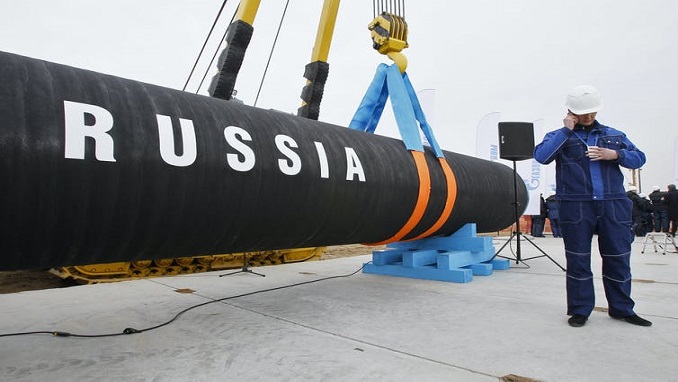The price of gas and oil has reached a record high on the world’s stock markets. Since the start of the military conflict between Russia and Ukraine, the price of natural gas from Russia has risen by almost 60 percent. The high price of energy further aggravates the energy crisis, as price growth puts strong pressure on the world economy by increasing the price of consumer goods. Rising gas and oil prices in Russia have hit the European Union and its economy hard. Nearly 70 percent of the EU’s gas comes from Russia, as well as half of the Union’s oil imports. Russia’s military offensive in Ukraine has so far created uncertainty, and no one can say for sure how it will unfold in the future. But what is certain is that this situation is deeply related to energy. Russia’s main trump card is energy. This country is among the three largest world producers of gas and oil.
It is more than clear that the European Union is facing political and security challenges following Russia’s invasion of Ukraine. But this situation has also created economic and energy turmoil in the Union. The main question is how this situation will affect the accelerated energy transition in the EU? Is an energy transition possible without Russian gas? These issues are the main dilemmas in Brussels these days, the interpretation of which so far takes place only at the level of political rhetoric.
The EU energy transition and the implementation of the Green Agreement should, among other things, provide greater energy dependence on EU countries. Investments in green energy have the primary goal of providing sustainable green energy and reducing CO2 emissions, but also the most important long-term goal is to ensure greater energy independence of the EU, which is important both economically and politically. Of course, no one has any hopes that this energy transition will happen overnight, but the fact is that EU countries have invested a lot of money and significantly increased their capacity in renewable energy. Germany, which is most dependent on Russian gas, has been particularly involved in this process.
Although political leaders are actively advocating for green energy and energy transition, as one of the solutions to reduce energy dependence on Russia, in reality, this process is not easily feasible. The security and energy crisis will also affect the realization of the green agenda, which is an important strategic component of the Union. The first attempts to find an alternative to Russian gas are the new EU energy strategy, the novelties of which are based on finding alternative energy solutions.
According to the strategy, the Union will strive to reduce fossil fuels by as much as 40 percent and will replace Russian gas with liquefied natural gas from other sources. However, this Strategy basically does not deviate from the EU Green Treaty and its basic principles. The importance of green energy is also emphasized in the adapted Energy strategy, which is in a way a political response of the Union in the context of current developments. Namely, the position remains that the best solution for the EU is to accelerate the implementation of the Green Deal, through more investments in renewable energy sources and greater energy efficiency, in order to create greater energy independence.
It seems that this process will not be simple without the support of fossil fuels in the transition period. There is no doubt that the European Union is firmly committed to implementing the Green Agenda, and huge funds are being invested in its implementation. However, it seems that without natural gas, the realization of the green agenda can be slowed down, but it is almost more than clear that the process of its realization will continue. The role of natural gas in the energy transition is important, so the European Union has launched an initiative to consider this energy source as green energy.
This approach is aimed at providing logistical support for the successful implementation of the Green Deal, in the previously planned time frame. Hence, the overall situation in Ukraine and the dependence on Russian gas will affect the energy transition in the Union. But there is no doubt that the process can be slowed down, but the green agenda will not be abandoned. Renewable energy sources are already a priority, and the benefits are more than obvious. In addition to the benefits for the environment, renewable energy sources through the application of new technologies and innovative solutions contribute to the complete transformation of the economy and open new opportunities for development. Despite the challenges, this sector will continue to be attractive with its great potential.

